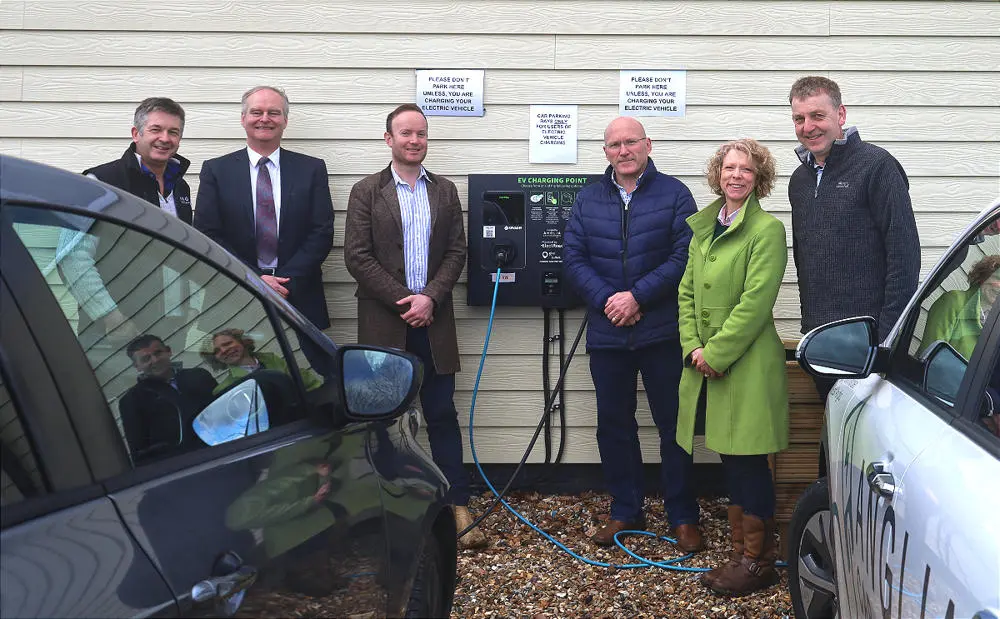Risby Village Hall now has four EV charging points installed at its site, three 7kW chargers and one 22kW charger. They do not require any registration, membership or apps - drivers simply park, plug in and charge using contactless payment.
David Edwards, Chairman of Risby Village Hall Trust, explains the importance of installing the charging points:
“We are delighted to have these chargers installed and thank the council’s Plug In Suffolk project for making this happen. It is part of the Hall's environmental policy to become carbon neutral by 2030 and to help support EV usage for both residents and visitors.
“As a community hub, we want to offer local residents the ability to charge their vehicles, if they can’t do so at home. We also want to make the Hall attractive to our visitors, as EV charging is something that more and more customers expect.”
Plug In Suffolk reached out to rural parish and town councils and non-profit organisations, to put in fast chargers where there are currently none. The project has funded installation and set-up costs, meaning very little expense for the hosts, allowing them to own the chargers and keep customer tariffs low.
Councillor Richard Rout, Suffolk County Council’s Deputy Leader and Cabinet Member for Finance and Environment, said:
“With an increasing number of EV drivers across the county and the UK, the council’s ambition is to make Suffolk a well-connected destination for visitors and residents.
“We’re a rural county and the infrastructure of charging stations is still developing, so our aim is for Plug In Suffolk to plug the gaps. We are installing the chargers at rural destinations such as public car parks, sports clubs, libraries and community halls.
“This also contributes to the council’s ambitions of being net zero by 2030 and to protect and enhance our environment. Projects like Plug In Suffolk contribute to better air quality, reduce carbon emissions and cut down our reliance on fossil fuels.”
Although the initial phase of Plug In Suffolk is now complete, EV owners can look forward to even more charging point infrastructure across Suffolk, thanks to Suffolk County Council.
The council has received £1,362,000 of funding from the Department for Transport, as part of the Local EV Infrastructure (LEVI) pilot scheme. This will see a total investment of around £2.75m, thanks to additional contributions such as commercial funding.
The scheme will see:
- PV solar power and battery storage upgrades to approximately 10 existing sites
- Installing community EV charging, PV solar power and battery storage at over 30 further sites in urban and rural areas
- Identifying key commercial sites for 7kW, rapid and ultra rapid chargers, which will benefit the local community
This work also continues the council’s contribution to the Suffolk Climate Emergency Plan, which identified that the decarbonisation of vehicles in Suffolk is a key aspect of meeting the net zero by 2030 target for the county.

